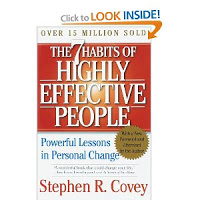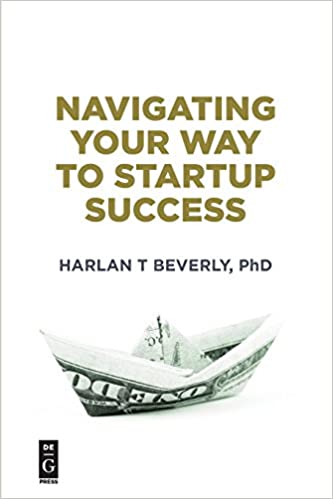One of the hardest things to do as a Manager is to empower, or trust, a subordinate or co-worker to be responsible, truly responsible, for decisions or stewardship of some aspect of work. In my case, I am constantly struggling not to “take over”, “over-ride decisions”, and “hover over the shoulder”. In truth, this is a big struggle for, I have to really fight it. But this idea, the idea of empowerment, is one that research has shown is an important factor in: a.) building teams, b.) building a great company culture, and c.) having the best possible business outcomes.
If you think about it, very few people want a manager that ‘hovers’ and over-rides decisions, and never allows you to have responsibility for anything. And on top of that there are two practical concerns: you, an individual, simply can’t make every decision and be responsible for everything…. no person scales infinitely. Second, your decisions will probably not be the best ones in every situation.
Do you want unthinking automatons, or do you want an organization with people that love their job (a side-effect of true empowerment), and scale the organization into a well-oiled and grow-able machine?
One of the tools that helps me to remember to empower, and not ‘hover’ is the story of “Green and Clean” from from Stephen Covey’s
The 7 Habits of Highly Effective People. I have excerpted the entire Green and Clean story from
here below. This story not only reminds me about the importance of Empowerment but also gives me (and hopefully you) the following tools to help me as a manager do Empowerment better:
- The principle of Stewardship (Empowerment) can be a very powerful bonding agent and growth agent for individuals.
- The first rule is to explain what Stewardship (Empowerment / Ownership) means… I do this by making it a key component of company culture (or department culture).
- The second rule is to explain what Successful Stewardship looks like… get an agreement, ideally on paper, about what success looks like.
- The third rule is to pre-establish the “monitoring” or accounting policy, including frequency and type of reporting or inspection. (this is the contract!) This is the “Green and Clean” concept… defining success and empowering others to see it done.
- Fourth, offer help or assistance as a ‘virtual employee’ whenever it is needed… (but don’t let them ask you what to do!)! Only let them ask you to do something. (this is a fine balance if dealing with children or young employees, since I try to do this with my kids as well… sometimes they need a little guidance about how to go about getting to success).
- Finally, don’t break the contract! Don’t hover…. and most importantly DO NOT DICTATE THE METHODS! Stick to the contract (this is hard to do).
Now, please, read the little story below from Dr. Covey, and I think you will not only see where the 6 points above come from, but also, be rewarded by understanding the powerful impact that this can have on an individual… and I can tell you from my experience… it has a powerful impact also on an organization.

Some years ago, I had an interesting experience in delegation with one of my sons. We were having a family meeting, and we had our mission statement up on the wall to make sure our plans were in harmony with our values. Everybody was there.
I set up a big blackboard and we wrote down our goals- the key things we wanted to do - and the jobs that flowed out of those goals. Then I asked for volunteers to do the job.
"Who wants to pay the mortgage?" I asked. I noticed I was the only one with my hand up.
"Who wants to pay for the insurance? The food? The cars?" I seemed to have a real monopoly on the opportunities.
"Who wants to feed the new baby?" There was more interest here, but my wife was the only one with the right qualifications for the job.
As we went down the list, job by job, it was soon evident that Mom and Dad had more than sixty-hour work weeks. With that paradigm in mind, some of the other jobs took on a more proper perspective.
My seven-year-old son, Stephen, volunteered to take care of the yard. Before I actually gave him a job, I began a thorough training process. I wanted him to have a clear picture in his mind of what a well-cared-for yard was like, so I took him next door to our neighbor's.
"Look, son," I said. "See how our neighbor's yard is green and clean? That's what we're after: green and clean. Now come look at our yard. See the mixed colors? That's not it; that's not green. Green and clean is what we want. Now how you get it green is up to you. You're free to do it any way you want, except paint it. But I'll tell you how I'd do it if it were up to me."
"How would you do it, Dad?"
"I 'd turn on the sprinklers. But you may want to use buckets or a hose. It makes no difference to me. All we care about is that the color is green. Okay?"
"Okay."
"Now let's talk about 'clean,' Son. Clean means no messes around - no paper, strings, bones, sticks, or anything that messes up the place. I'll tell you what let's do. Let's just clean up half of the yard right now and look at the difference."
So we got out two paper sacks and picked up one side of the yard. "Now look at this side. Look at the other side. See the difference? That's called clean."
"Wait!" he called. "I see some paper behind that bush!"
"Oh, good! I didn't notice that newspaper back there. You have good eyes, Son."
"Now before you decide whether or not you're going to take the job, let me tell you a few more things. Because when you take the job, I don't do it anymore. It's your job. It's called a stewardship. Stewardship means 'a job with a trust.' I trust you to do the job, to get it done. Now who's going to be your boss?"
'You, Dad?"
"No, not me. You're the boss. You boss yourself. How do you like Mom and Dad nagging you all the time?"
"I don't."
"We don't like doing it either. It sometimes causes a bad feeling doesn't it? So you boss yourself. Now, guess who your helper is."
"Who?"
"I am," I said. 'You boss me."
"I do?"
'That's right. But my time to help is limited. Sometimes I'm away. But when I'm here, you tell me how I can help. I'll do anything you want me to do."
"Okay!"
"Now guess who judges you."
"Who?"
'You judge yourself."
"I do?"
'That's right. Twice a week the two of us will walk around the yard and you can show me how it's coming. H ow are you going to judge?"
"Green and clean."
"Right!"
I trained him with those two words for two weeks before I felt he was ready to take the job. Finally, the big day came.
"Is it a deal, Son?"
"It's a deal."
"What's the job?"
"Green and clean."
"What's green?"
He looked at our yard, which was beginning to look better. Then he pointed next door. 'That's the color of his yard."
"What's clean?"
"No messes."
"Who's the boss?"
"I am."
"Who's your helper?"
'You are, when you have time."
"Who's the judge?"
"I am. We'll walk around two times a week and I can show you how it's coming."
"And what will we look for?"
"Green and clean."
At that time I didn't mention an allowance. But I wouldn't hesitate to attach an allowance to such a stewardship.
Two weeks and two words. I thought he was ready.
It was Saturday. And he did nothing. Sunday.. .nothing. Monday. ..nothing. As I pulled out of the driveway on my way to work on Tuesday, I looked at the yellow, cluttered yard and the hot July sun on its way up. "Surely he'll do it today," I thought. I could rationalize Saturday because that was the day we made the agreement. I could rationalize Sunday; Sunday was for other things. But I couldn't rationalize Monday. And now it was Tuesday. Certainly he'd do it today. It was
summertime. What else did he have to do?
All day I could hardly wait to return home to see what happened. As I rounded the corner, I was met with the same picture I left that morning. And there was my son at the park across the street playing.
This was not acceptable. I was upset and disillusioned by his performance after two weeks of training and all those commitments. We had a lot of effort, pride, and money invested in the yard and I could see it going down the drain. Besides, my neighbor's yard was manicured and beautiful, and the situation was beginning to get embarrassing.
I was ready to go back to gofer delegation. Son, you get over here and pick up this garbage right now or else! I knew I could get the golden egg that way. But what about the goose? What would happen to his internal commitment?
So I faked a smile and yelled across the street, "Hi, Son. How's it going?"
"Fine!" he returned.
"How's the yard coming?" I knew the minute I said it I had broken our agreement. That's not the way we had set up an accounting. That's not what we had agreed.
So he felt justified in breaking it, too. "Fine, Dad."
I bit my tongue and waited until after dinner. Then I said, "Son, let's do as we agreed. Let's walk around the yard together and you can show me how it's going in your stewardship."
As we started out the door, his chin began to quiver. Tears welled up in his eyes and, by the time we got out to the middle of the yard, he was whimpering.
"It's so hard, Dad!"
What's so hard? I thought to myself. You haven't done a single thing! But I knew what was hard - self management, self-supervision. So I said, "Is there anything I can do to help?"
"Would you, Dad?" he sniffed
"What was our agreement?"
'You said you'd help me if you had time."
"I have time."
So he ran into the house and came back with two sacks. He handed me one. "Will you pick that stuff up?" He pointed to the garbage from Saturday night's barbecue. "It makes me sick!"
So I did. I did exactly what he asked me to do. And that was when he signed the agreement in his heart. It became his yard, his stewardship.
H e only asked for help two or three more times that entire summer. He took care of that yard . He kept it greener and cleaner than it had ever been under my stewardship. He even reprimanded his brothers and sisters if they left so much as a gum wrapper on the lawn.
Trust is the highest form of human motivation. It brings out the very best in people. But it takes time and patience, and it doesn't preclude the necessity to train and develop people so that their competency can rise to the level of that trust.
I am convinced that if stewardship delegation is done correctly, both parties will benefit and ultimately much more work will get done in much less time. I believe that a family that is well organized, whose time has been spent effectively delegating on a one-to-one basis, can organize the work so that everyone can do everything in about an hour a day. But that takes the internal capacity to want to manage, not just produce. The focus is on effectiveness, not efficiency.
Certainly you can pick up that room better than a child, but the key is that you want to empower the child to do it. It takes time. You have to get involved in the training and development. It takes time, but how valuable that time is downstream! It saves you so much in the long run.
This approach involves an entirely new paradigm of delegation. I n effect, it changes the nature of the relationship: The steward becomes his own boss, governed by a conscience that contains the commitment to agreed upon desired results. But it also releases his creative energies toward doing whatever is necessary in harmony with correct principles to achieve those desired results.
The principles involved in stewardship delegation are correct and applicable to any kind of person or situation. With immature people, you specify fewer desired results and more guidelines, identify more resources, conduct more frequent accountability interviews, and apply more immediate consequences. With more mature people, you have more challenging desired results, fewer guidelines, less frequent accountability, and less measurable but more discernible criteria.
Effective delegation is perhaps the best indicator of effective management simply because it is so basic to both personal and organizational growth.
The key to effective management of self, or of others through delegation, is not in any technique or tool or extrinsic factor. It is intrinsic-- in the Quadrant II paradigm that empowers you to see through the lens of importance rather than urgency.
Story by Dr. Stephen Covey The 7 Habits of Highly Effective People




